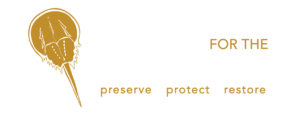Center for the Inland Bays Recommends Mitigation of Mountaire Pollution
Rehoboth Beach – The Delaware Center for the Inland Bays has released a series of recommendations related to wastewater permit violations at the Mountaire poultry processing facility on the Indian River. The recommendations follow a presentation in April of findings that the facility has a history of chronic permit violations and lax enforcement that contributed to pollution of ground and surface waters. The recommendations also follow the release in June of a consent decree between Mountaire and the Delaware Department of Natural Resources and Environmental Control (DNREC), which has been challenged by local residents in Delaware Superior Court.
A Committee of the Center’s Board of Directors helped to develop the recommendations that include pollution remediation, regulation and permitting, environmental monitoring, and public information. While the recommendations were developed before the consent decree was released, they remain relevant today.
Among the recommendations are a full accounting of pollution released from the facility in excess of its permitted limits extending back to at least 2009. Also included is a recommendation that Mountaire prevent twice that amount of pollution from entering surface waters through new pollution control practices. The consent decree between Mountaire and DNREC would require an amount of pollution twice as much as released over permitted limits to be cleaned up. However, it only seeks this beginning from July 31 of 2017, the date that a wastewater permit was issued just weeks before the facility’s wastewater system failed.
The Center also recommends that the facility’s water supply wells be relocated to intercept the most polluted groundwaters for treatment by the facility’s wastewater system. The consent decree also contains this action. However, per the decree, well relocation would only be required after a new wastewater treatment system is constructed, which could take years. This will allow highly-contaminated groundwater to continue leaching from the aquifer into Swan Creek and Indian River.
Other recommendations call for Mountaire to monitor the quality of water in Swan Creek and support additional monitoring of Indian River. Existing monitoring of the river during the summers of 2017 and 2018 showed some of its worst-ever recorded water quality, with extremely-dense algae blooms and dissolved oxygen levels regularly falling to near zero.
The recommendations also call for regular reports to the public on the pollution levels in the wastewater that continues to be disposed of at the facility. Requests from the Center to DNREC for additional information about pollution levels and the proposed cleanup were not met. Chris Bason, Executive Director for the Center for the Inland Bays, said “Clean drinking water and a healthy Indian River are extremely important to the health of our community and economy. We recognize the ongoing legal proceedings between DNREC and Mountaire, and we encourage important information concerning water resources to be made public.”
The Center’s recommendations also call for:
- An evaluation of the failure by regulatory agencies to prevent permit violations and achieve permit compliance at the facility.
- DNREC to address the violations of the facility’s Coastal Zone Act Permit
- DNREC to maintain complete and up to date records for wastewater facilities on its public online information system.
- Sellers of homes with private drinking water wells to disclose the level of nitrate in the water prior to sale of the home.
The Center intends to advocate for the implementation of these recommendations and to continue informing the public about the water quality and importance of the Inland Bays. To read the full report including findings and recommendations, visit the Center’s website at www.inlandbays.org/mountaire-contamination-report/
The Delaware Center for the Inland Bays is a non-profit organization established in 1994, and is one of 28 National Estuary Programs. With its many partners, the CIB works to preserve, protect and restore Delaware’s Inland Bays and their Watershed.
For more information call Chris Bason at 226-8105×104, send an email to chrisbason@inlandbays.org or, visit our website: www.inlandbays.org
###
